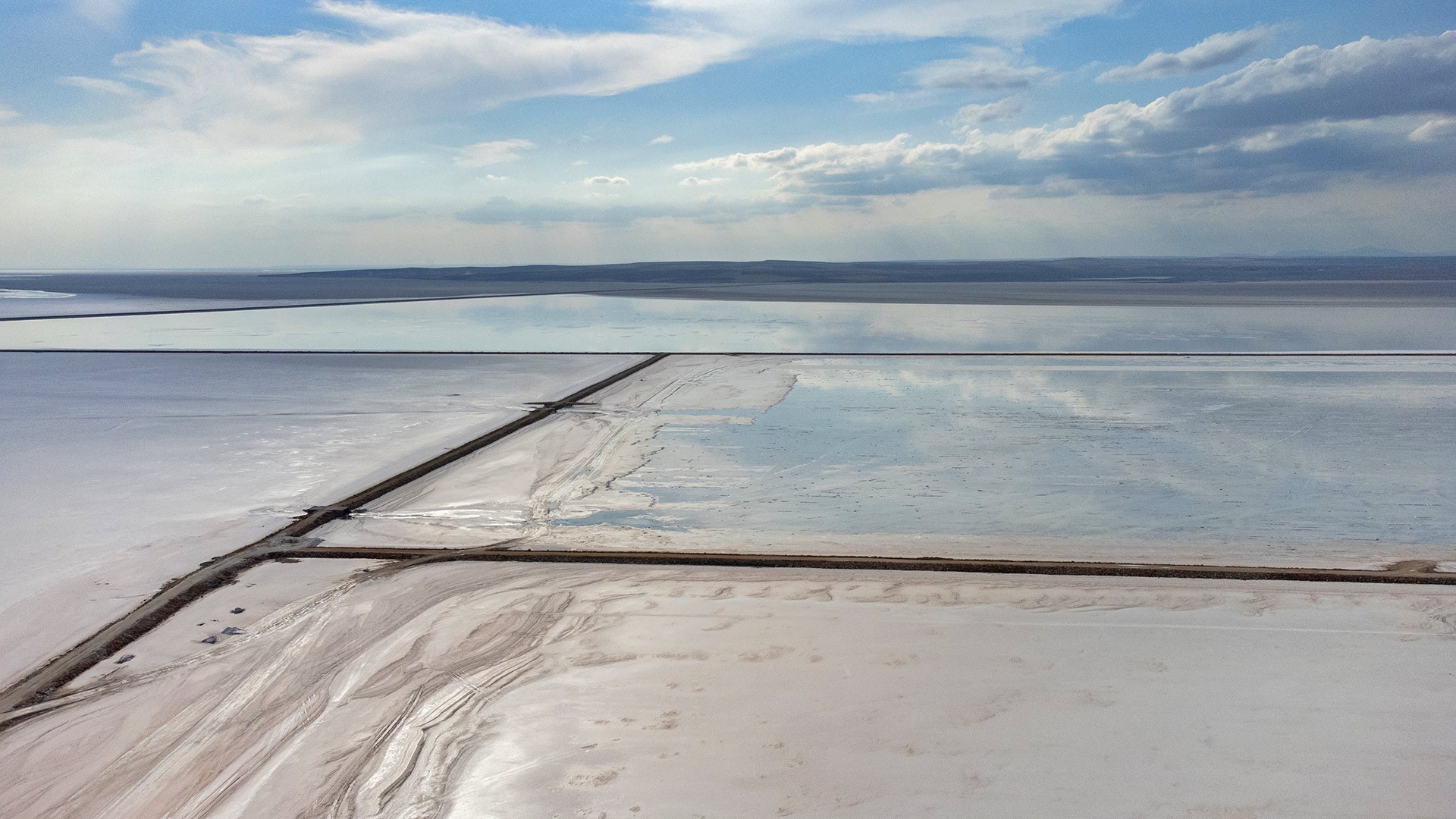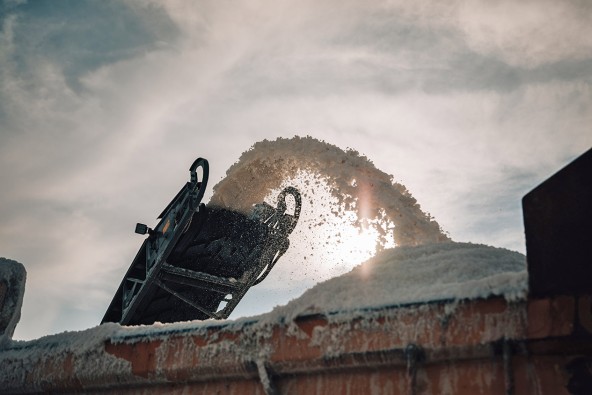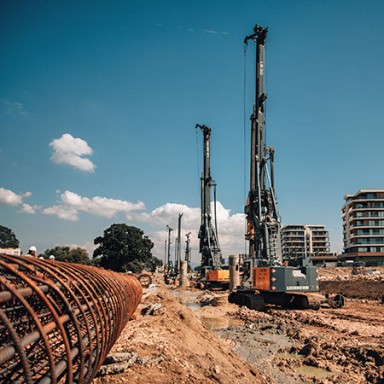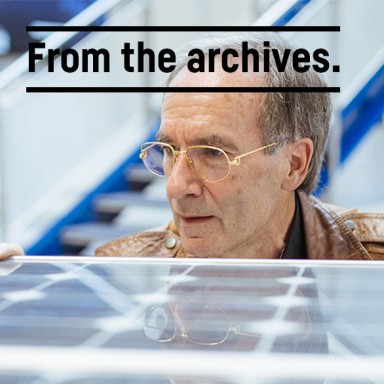
June 2023
White gold
Yusuf Sinan Doğan's workplace is a breathtaking sight. As far as the eye can see, it glistens white. The Tuz Gölu salt lake, operated by the Koyuncu Group Company, is located in central Anatolia, in the middle of the provinces of Ankara, Konya and Aksaray. With a size of 3,500 km², it covers around 60% of the salt production in Türkiye. And the two Liebherr XPower wheel loaders come into contact with every single grain of salt.

Salt mining at Tuz Gölü
Yusuf Sinan Doğan’s workplace is literally a lake of salt. He is an engineering geologist and has been working for the Koyuncu Group Company for about ten years. The Tuz Gölü Salt Lake, operated by the Koyuncu Group Company, is located in Central Anatolia, nestled between the provinces of Ankara, Konya and Aksaray. Covering an area of 3,500 km², it produces around 60% of Türkiye’s salt. “We produce almost one million tonnes of crude salt per year. The salt is exported to about 60 countries where it is put to a wide variety of uses,” he explains. “Most of it in the food industry, but it is also used in other industries: in the production of paint and glass, for example.”
As parts of Türkiye experience heavy snowfall in winter, the salt is also used to keep the roads clear. “We are thrilled to be able to contribute to the public infrastructure of our country,” says Yusuf Sinan Doğan. Weather conditions also have an impact on the work at the salt lake. Salt extraction is not possible all year round. The salt lake has always been a closed basin –so it has no outlet. When the winter rainy season causes the water level to rise, the salt from the inland lake also rises to the surface. During the hot, dry summer months, the water evaporates, and this salt layer is then removed by cold milling machines, loaded onto lorries, and placed in temporary storage before being sent for further processing.

This is where the two Liebherr XPower wheel loaders L 550 and L 566 come into play. The buckets, which can hold up to 4 m³, come into contact with every single grain of salt. “The wheel loaders are generally used for loading raw salt in the fields, and for loading and unloading at the plant and the salt bunkers,” says Doğan. This working environment is tough on the machines. “The constant contact with water and salt means that the electronics and paint are inevitably exposed to chemical attack and corrosion. But the Liebherr machines hold up well over the summer months and are then serviced and revamped by Liebherr Service during the winter months.” Working in the salt fields is also challenging for the employees. Like snow, the white salt reflects the sun so strongly that you have to wear sunglasses at all times for protection from UV radiation. Around 250 employees work in these fields during peak season. “Sometimes, when we sit down to dinner, we wonder whether the salt we’re eating comes from our own workplace,” says Yusuf Sinan Doğan, and laughs.



